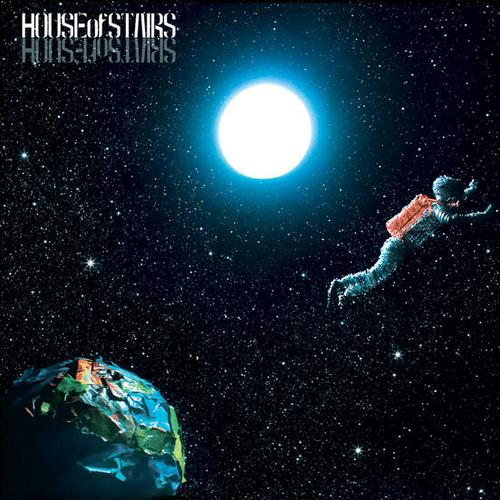|
Written by Brandon Biallas
On their debut release, Phoenix-based jazz group House of Stairs fuses together elements of hip hop and electronica for a musical interpretation of MC Esher's artwork. Esher's visual innovations are mirrored in the album's complex arrangements and hypnotic melodies, and stands as a not-to-be-missed jazz release of the year.
On their self-titled debut album, House of Stairs thoroughly delivers on what I believe will be looked back on as a solid first release for years to come. House of Stairs has been a local Phoenix favorite for years now, making a name for themselves in the jazz scene with their unique interpretations of songs like "Chandelier" by Sia, as well as strong, thought-provoking original songs which are finally fully realized in the form of this album. The musical styles on this album are diverse, encompassing elements of hip hop, jazz, acapella, and electronica, thrown against an ethereal backdrop reminiscent of floating through outer space. The opening track to the album, “Veil”, is easily one of my favorites. This song starts off slow, with a bouncy keyboard line played by the talented Garrison Jones, that comes in shortly after the quiet vocal harmonies. As the opening lines of the verse start, the music builds with a slow-burning intensity. The drums come in shortly afterwards and keep the song moving with a steadiness that hints at something big coming. Suddenly, all the instruments drop out and the band’s lead vocalist, Holly Pyle, belts the line “Stretch the Sky” which is delivered in a way that commanded my attention immediately. This brought about one of my favorite moments of the album, as it gives way to an incredibly catchy keyboard riff and drum groove that keeps the momentum going as powerfully as it began. Holly Pyle’s vocals are borderline hypnotic with her firm grasp on vocal harmony. She adds layer after layer of her voice onto the music which occasionally feels as if the band has its own choir. With the use of a loop pedal, she’s also able to achieve this effect live by singing over vocal parts she records on the fly, which is always a treat to witness as she builds the different vocal parts into something unexpected and intricately soothing all at once. They say that their music is influenced by the “visual innovations of M.C. Escher” and Pyle’s multi-faceted vocal parts are one of many examples of this influence present throughout the album. As if his keyboard arrangements weren’t interesting enough, Garrison Jones handles lead vocal duties on the song “John” which was a cool change of pace. His singing voice is very smooth and fits the vibe of the song well as one of the more spacey-sounding tracks on the album. He seamlessly switches between different patches on his keyboards throughout the album that vary between piano, bass synths, organ, Fender Rhodes keyboard tones, and more. In a band full of talent, he is certainly a standout member and the glue that holds the music together as he juggles the roles of different musicians rolled into one. Stephen Avalos has some monster drumming chops. Even when he’s playing a more laid back, simple groove, it feels more interesting just because of the way he approaches it. This subtlety to his style is another strong element in the band because it provides a solid foundation for the other musicians to stand on and shine. The song “Alphabet Soup” is a great example of him taking simple concept for a beat and gradually building on it. As the first verse continues, his driving beat takes on a slightly different feel to it that gives the music a sense of movement it might not have achieved with his absence. In the second verse, he uses a drum roll technique instead of the initial beat he used, which gives the same musical section a fresh feel the second time around. Shea Marshall deserves an honorable mention in this review as well because he adds more welcome layers to an already densely layered project. A talented multi-instrumentalist, Shea is credited on the album for providing saxophone, accordion, piano, and bass clarinet. His use of accordion on the song “Cartier Bresson” was an unexpected element to the song that I grew to love more and more as the song kept playing. This is one of many examples of how his personal touches on the band’s songs can be contrary to what you might expect but absolutely critical to the band’s sound and unique take on jazz. It just wouldn’t be the same without his creativity present on these songs. Lord Kash from the Phoenix jazz/hip hop collective The Stakes makes an appearance on the song “Autopilot” towards the end of the track. This felt like a really natural collaboration and added an introspective quality to the music with each of his lines. He sounds like a wise teacher passing on the lessons of his life to anyone willing to listen. For a band that set out to create music inspired by the intricate works of M.C. Escher, I would find it difficult to argue that they haven’t accomplished that goal with flying colors. House of Stairs’ self-titled debut album is the sonic equivalent of the Escher piece for which their band is named and I’m very excited for what comes next.
0 Comments
Leave a Reply. |
Categories
All
Blog Archives
July 2024
|


 RSS Feed
RSS Feed